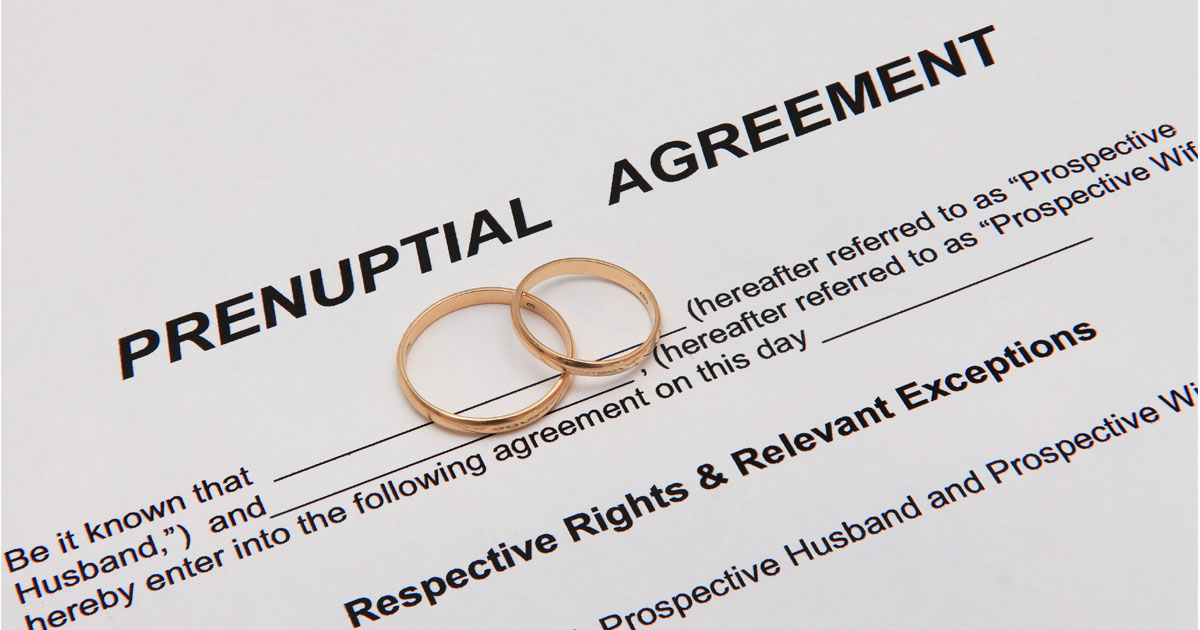In the eyes of the law, marriage is a civil matter. But for many, it is also a religious matter. At times, the two can seem at odds. When it comes to divorce and division of property, which has the ultimate authority?
Since the Constitution ensures the separation of church and state, how do judges enforce the law when the two conflict?
This can be problematic when it comes to prenuptial agreements. Some religions do not accept such contracts, whereas other religions encourage or even require them. This discussion gives some examples of how prenuptial agreements affect marriages in different religious contexts.
Catholicism
Roman Catholic Church teachings hold that prenuptial agreements are unacceptable. This view is based on the idea that such a contract creates conditions that undermine the legitimacy of the marriage before it even starts. By outlining an understanding for a possible future divorce, the husband and wife are not fully committing themselves to the marriage.
Church leaders preach that, by keeping separate assets, the couple is not entering the community of life that is required for a valid marriage.
One allowable exception may be made in cases in which a widow or widower wishes to protect the inheritance of the children from his or her first marriage. But, in the Church’s view, the plans must be made for the contingency of death, not to support an arrangement in the event of divorce.
Some dioceses require the prenuptial agreement to be approved before a Catholic wedding can take place. Whether or not the Church approves or even knows about the prenuptial agreement, if one exists and is legally binding, civil courts will uphold its contents.
Judaism
The Jewish religion recognizes divorce and provides rules that define the rules of divorce. In the same vein, a prenuptial agreement is not only permissible, but is also an established part of Jewish marriage tradition.
At the outset of the marriage, a document called a ketubah, or marriage contract, outlines the duties and responsibilities of the husband to the wife and their future children. It also defines questions of inheritance on the husband’s death and addresses the issue of the wife’s support in the event of divorce. Other issues may be included as long as both parties freely agree to the contract’s contents.
The contract may recognize the bet din, which means “house of judgment” in Hebrew. The bet din is a three-person panel that adjudicates cases according to Jewish law. This tribunal has the authority, according to Jewish tradition, to enforce religious law.
This arrangement has presented concerns of governmental jurisdiction. Municipal civil courts have grappled with the idea of allowing for couples to agree to turn to their religious leaders to take on matters of law. Although the bet din may not hold sway over civil laws, local jurisdictions can recognize the role these leaders play in upholding the contract made between the husband and wife.
In essence, council and its decisions are permissible because the authority vested with them is enshrined in the contract itself.
Islam
The Koran establishes that marriage is a solemn covenant, which is made between the husband and the wife’s wali, or guardian, usually her father. As part of the process, the husband gifts the wife a mahr, which is a dowry comprised of two parts: the muqaddam, which is paid at the time of the marriage; and the mu’akhkar, which is deferred and paid in the event of death or divorce. This deferred dowry is meant to dissuade the husband from divorce, as it could be very expensive.
Some jurisdictions have upheld the mahr, whereas others see it as merely symbolic.
Cherry Hill Divorce Lawyers at Burnham Douglass Assist Clients with Proving the Enforceability of Legally Permissible Prenuptial Agreements
When the veracity of a prenuptial agreement is in question, you will do well to enlist the help of an attorney well versed in divorce law. The Cherry Hill divorce lawyers at Burnham Douglass have extensive experience interpreting the law and arguing in support of their clients. Contact us online or call us at 856-751-5505 for a free consultation. We are located in Marlton and Northfield, New Jersey, and we serve clients throughout South Jersey, including Camden County, Burlington County, Atlantic County, Gloucester County, and Mercer County.


